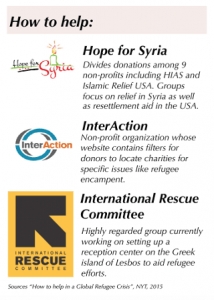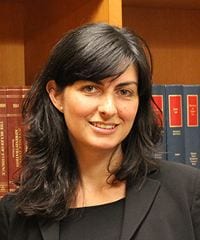by Maria Hawilo, JD
In Janine di Giovanni’s reporting on war in Syria, she tells of a graveyard worker named Mohammed, and his 4-year-old redheaded son. Mohammed works in a former park turned graveyard in a Syrian neighborhood in Aleppo. With his 4-year-old son by his side, Mohammed digs graves for corpses ravaged by war. When di Giovanni worries about the impact on his son, Mohammed tells her that he did not expect the carnage to affect his son; that “death is like life.”[i] Yet, death in war is different. And no 4-year-old child or grown man can escape its brutality. 
The war in Syria began with peaceful, anti-government demonstrations in March 2011. The government answered by turning peaceful protests into violent massacres. Armed opposition groups rose up in response, and the country was quickly engulfed in a civil war. The war continues to rage and the extent of its damage will not be understood for years. It is clear, however, that the war has had devastating consequences both for Syrians inside the country, and those who have fled. Without a concerted public health response to this crisis, Syrian refugees—particularly children—will suffer the consequences of untreated trauma in the years to come.
This paper concerns itself with the consequences of trauma on refugee children in Lebanon. In the first section, I describe the impact of exposure to violence on children and adolescents. As a means of comparison, I review research focused on children in the United States. Next, I focus on Syrian children in Lebanon and their experience of violence and displacement. Finally, I explore how our evolving understanding of trauma and the effects on children refugees give rise to a public health crisis and a call to action: effective interventions that address the mental health needs of a traumatized population of children must be implemented. Such interventions are critical to reduce the risk of increasing violence and delinquency and to preserve the opportunity for eventual asylum and citizenship status outside of Syria.
[i] Di Giovanni, Janine. The Morning They Came For Us, pgs. 141-142. 2016
About the Author
Maria Hawilo is a Clinical Assistant Professor of Law in the Bluhm Legal Clinic, Northwestern Law School. She co-teaches the Juvenile Justice Criminal Trials and Appeals Clinic and assists with the supervision of students who have been assigned criminal cases. Previously, she served as a supervising attorney for the District of Columbia’s Public Defender Service, representing individuals charged with criminal offenses.

